Authors
Authors
Robert D. Atkinson
 Robert Atkinson is the founder and president of the Information Technology and Innovation Foundation, a Washington, D.C.-based technology policy think tank. He is also author of the State New Economy Index series and the book, The Past And Future Of America's Economy: Long Waves Of Innovation That Power Cycles Of Growth (Edward Elgar, 2005). He has an extensive background in technology policy, he has conducted ground-breaking research projects on technology and innovation, is a valued adviser to state and national policy makers, and a popular speaker on innovation policy nationally and internationally.
Robert Atkinson is the founder and president of the Information Technology and Innovation Foundation, a Washington, D.C.-based technology policy think tank. He is also author of the State New Economy Index series and the book, The Past And Future Of America's Economy: Long Waves Of Innovation That Power Cycles Of Growth (Edward Elgar, 2005). He has an extensive background in technology policy, he has conducted ground-breaking research projects on technology and innovation, is a valued adviser to state and national policy makers, and a popular speaker on innovation policy nationally and internationally.
Before coming to ITIF, Dr. Atkinson was Vice President of the Progressive Policy Institute and Director of PPI's Technology & New Economy Project. While at PPI he wrote numerous research reports on technology and innovation policy, including on issues such as broadband telecommunications, Internet telephony, universal service, e-commerce, e-government, middleman opposition to e-commerce, privacy, copyright, RFID and smart cards, the role of IT in homeland security, the R&D tax credit, offshoring, and growth economics.
Previously Dr. Atkinson served as the first Executive Director of the Rhode Island Economic Policy Council, a public-private partnership including as members the Governor, legislative leaders, and corporate and labor leaders. As head of RIEPC, he was responsible for drafting a comprehensive economic strategic development plan for the state, developing a ten-point economic development plan, and working to successfully implement all ten proposals through the legislative and administrative branches. Prior to that he was Project Director at the former Congressional Office of Technology Assessment. While at OTA, he directed The Technological Reshaping of Metropolitan America, a seminal report examining the impact of the information technology revolution on America's urban areas.
Stewart Baker
 Stewart A. Baker is a partner in the Washington office of Steptoe & Johnson LLP. He returned to the firm following 3 1/2 years at the Department of Homeland Security as its first Assistant Secretary for Policy.
Stewart A. Baker is a partner in the Washington office of Steptoe & Johnson LLP. He returned to the firm following 3 1/2 years at the Department of Homeland Security as its first Assistant Secretary for Policy.
At Homeland Security, Mr. Baker created and staffed the 250-person DHS Policy Directorate. He was responsible for policy analysis across the Department, as well as for the Department's international affairs, strategic planning and relationships with law enforcement and public advisory committees. While at DHS, Mr. Baker led successful negotiations with European and Middle Eastern governments over travel data, privacy, visa waiver and related issues. He devised a new approach to visa-free travel, forged a congressional and interagency consensus on the plan and negotiated acceptance with key governments.
Mr. Baker manages one of the nation's premier technology and security practices at Steptoe. Mr. Baker's practice covers national security, electronic surveillance, law enforcement, export control encryption, and related technology issues. He has been a key advisor on U.S. export controls and on foreign import controls on technology. He has also advised companies on the requirements imposed by CFIUS.
Mr. Baker's practice includes issues relating to government regulation of international trade in high-technology products, and advice and practice under the antidumping and countervailing duty laws of United States, European Community, Canada, and Australia. He also counsels clients on issues involving foreign sovereign immunity, and compliance with the Foreign Corrupt Practices Act.
Mr. Baker has handled the arbitration of claims exceeding a billion dollars, is a member of national and international rosters of arbitrators, and is the author of articles and a book on the United Nations Commission on International Trade Law arbitration rules.
Mr. Baker has had a number of significant successes in appellate litigation and appearances before the United States Supreme Court. He developed—and persuaded the Court to adopt—a new theory of constitutional federalism that remains the most vibrant 10th Amendment doctrine of the past 30 years.
Ann Bartow
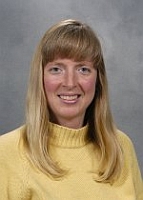 Ann Bartow is a Professor of Law at the University of South Carolina School of Law in Columbia, South Carolina. She holds a Bachelor of Science from Cornell University and a Juris Doctor from the University of Pennsylvania Law School. She currently teaches an Intellectual Property Survey, Copyright Law, Trademarks and Unfair Competition Law, Patent Law and a seminar entitled Pornography, Prostitution, Sex Trafficking and the Law. Her scholarship focuses on the intersection between intellectual property laws and public policy concerns, privacy and technology law, and feminist legal theory. She also co-administers the Feminist Law Professors blog, is a regular blogger at Madisonian.net and a contributing editor at Jotwell.com.
Ann Bartow is a Professor of Law at the University of South Carolina School of Law in Columbia, South Carolina. She holds a Bachelor of Science from Cornell University and a Juris Doctor from the University of Pennsylvania Law School. She currently teaches an Intellectual Property Survey, Copyright Law, Trademarks and Unfair Competition Law, Patent Law and a seminar entitled Pornography, Prostitution, Sex Trafficking and the Law. Her scholarship focuses on the intersection between intellectual property laws and public policy concerns, privacy and technology law, and feminist legal theory. She also co-administers the Feminist Law Professors blog, is a regular blogger at Madisonian.net and a contributing editor at Jotwell.com.
Yochai Benkler
Yochai Benkler is the Berkman Professor of Entrepreneurial Legal Studies at Harvard, and faculty co-director of the Berkman Center for Internet and Society. Before joining the faculty at Harvard Law School, he was Joseph M. Field '55 Professor of Law at Yale. He writes about the Internet and the emergence of networked economy and society, as well as the organization of infrastructure, such as wireless communications.
In the 1990s he played a role in characterizing the centrality of information commons to innovation, information production, and freedom in both its autonomy and democracy senses. In the 2000s, he worked more on the sources and economic and political significance of radically decentralized individual action and collaboration in the production of information, knowledge and culture. His books include The Wealth of Networks: How Social Production Transforms Markets and Freedom (2006), which received the Don K. Price award from the American Political Science Association for best book on science, technology, and politics.
In civil society, Benkler's work was recognized by the Electronic Frontier Foundation's Pioneer Award in 2007, and the Public Knowledge IP3 Award in 2006. His articles include Overcoming Agoraphobia (1997/98, initiating the debate over spectrum commons); Commons as Neglected Factor of Information Production (1998) and Free as the Air to Common Use (1998, characterizing the role of the commons in information production and its relation to freedom); From Consumers to Users (2000, characterizing the need to preserve commons as a core policy goal, across all layers of the information environment); Coase's Penguin, or Linux and the Nature of the Firm (characterizing peer production as a basic phenomenon of the networked economy) and Sharing Nicely (2002, characterizing shareable goods and explaining sharing of material resources online). His work can be freely accessed at benkler.org.
Larry Downes
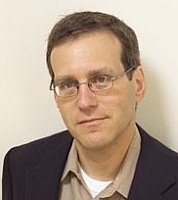 Larry Downes is an Internet analyst and consultant, helping clients develop business strategies in an age of constant disruption caused by information technology.
Larry Downes is an Internet analyst and consultant, helping clients develop business strategies in an age of constant disruption caused by information technology.
Downes is author of Unleashing the Killer App: Digital Strategies for Market Dominance (Harvard Business School Press, 1998), which was named by the Wall Street Journal as one of the five most important books ever published on business and technology.
His new book, The Laws of Disruption: Harnessing the New Forces that Govern Lie and Business in the Digital Age (Basic Books 2009) offers nine strategies for success in navigating the accident-prone intersection of innovation and the law.
From 2006-2010, Downes was a nonresident Fellow at the Stanford Law School Center for Internet and Society. Before that, he held faculty positions at the University of California-Berkeley, Northwestern University School of Law, and the University of Chicago Graduate School of Business. Downes is a Partner with the Bell-Mason Group, which works with Global 1000 corporations, providing corporate venturing methodologies, tools, techniques and support that accelerate corporate innovation and venturing programs.
He has written for a variety of publications, including U.S.A Today, Harvard Business Review, Inc., Wired, CNet, Strategy & Leadership, CIO, The American Scholar and the Harvard Journal of Law and Technology. He was a columnist for both The Industry Standard and CIO Insight. He blogs for the Technology Liberation Front.
Josh Goldfoot
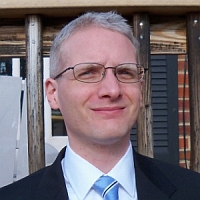 Josh Goldfoot is Senior Counsel with the Computer Crime & Intellectual Property Section of the U.S. Department of Justice. He prosecutes hackers and other computer criminals, and advises investigators and other prosecutors about privacy statutes, the Fourth Amendment, and implications of emerging technologies on law enforcement. In 2010, he was awarded the Assistant Attorney General's Meritorious Service Award. He is an accomplished software developer and computer technician, and received a United States patent in 2008 for shape recognition technology. He is a graduate of Yale University and earned his law degree from the University of Virginia School of Law. He has worked in technology law since 1999, when he advised Internet startups in Silicon Valley on intellectual property issues. Prior to joining the Department of Justice in 2005, he did appellate and civil litigation, and clerked for judge Alex Kozinski on the Ninth Circuit U.S. Court of Appeals. He was a Special Assistant United States Attorney in the Eastern District of Virginia for six months in 2007 and 2008.
Josh Goldfoot is Senior Counsel with the Computer Crime & Intellectual Property Section of the U.S. Department of Justice. He prosecutes hackers and other computer criminals, and advises investigators and other prosecutors about privacy statutes, the Fourth Amendment, and implications of emerging technologies on law enforcement. In 2010, he was awarded the Assistant Attorney General's Meritorious Service Award. He is an accomplished software developer and computer technician, and received a United States patent in 2008 for shape recognition technology. He is a graduate of Yale University and earned his law degree from the University of Virginia School of Law. He has worked in technology law since 1999, when he advised Internet startups in Silicon Valley on intellectual property issues. Prior to joining the Department of Justice in 2005, he did appellate and civil litigation, and clerked for judge Alex Kozinski on the Ninth Circuit U.S. Court of Appeals. He was a Special Assistant United States Attorney in the Eastern District of Virginia for six months in 2007 and 2008.
Eric Goldman
 Eric Goldman is an Associate Professor of Law at Santa Clara University School of Law. He also directs the school's High Tech Law Institute. Before joining the SCU faculty in 2006, he was an Assistant Professor at Marquette University Law School, General Counsel of Epinions.com, and an Internet transactional attorney at Cooley Godward LLP.
Eric Goldman is an Associate Professor of Law at Santa Clara University School of Law. He also directs the school's High Tech Law Institute. Before joining the SCU faculty in 2006, he was an Assistant Professor at Marquette University Law School, General Counsel of Epinions.com, and an Internet transactional attorney at Cooley Godward LLP.
Eric teaches Cyberlaw and Intellectual Property and previously has taught courses in Copyrights, Contracts, Software Licensing and Professional Responsibility.
Eric's research focuses on Internet law, intellectual property, marketing, and the legal and social implications of new communication technologies. Recent papers have addressed topics such as search engines and online marketing practices.
Eric received his BA, summa cum laude and Phi Beta Kappa, in Economics/Business from UCLA in 1988. He received his JD from UCLA in 1994, where he was a member of the UCLA Law Review, and concurrently received his MBA from the Anderson School at UCLA.
James Grimmelmann
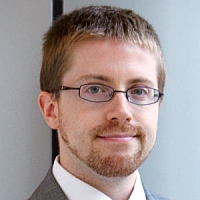 James Grimmelmann is Associate Professor at New York Law School and a member of its Institute for Information Law and Policy. He received his J.D. from Yale Law School, where he was Editor-in-Chief of LawMeme and a member of the Yale Law Journal. Prior to law school, he received an A.B. in computer science from Harvard College and worked as a programmer for Microsoft. He has served as a Resident Fellow of the Information Society Project at Yale, as a legal intern for Creative Commons and the Electronic Frontier Foundation, and as a law clerk to the Honorable Maryanne Trump Barry of the United States Court of Appeals for the Third Circuit.
James Grimmelmann is Associate Professor at New York Law School and a member of its Institute for Information Law and Policy. He received his J.D. from Yale Law School, where he was Editor-in-Chief of LawMeme and a member of the Yale Law Journal. Prior to law school, he received an A.B. in computer science from Harvard College and worked as a programmer for Microsoft. He has served as a Resident Fellow of the Information Society Project at Yale, as a legal intern for Creative Commons and the Electronic Frontier Foundation, and as a law clerk to the Honorable Maryanne Trump Barry of the United States Court of Appeals for the Third Circuit.
He studies how the law governing the creation and use of computer software affects individual freedom and the distribution of wealth and power in society. As a lawyer and technologist, he aims to help these two groups speak intelligibly to each other. He writes about intellectual property, virtual worlds, search engines, online privacy, and other topics in computer and Internet law. Recent publications include The Internet Is a Semicommons, 78 Fordham L. Rev. 2799 (2010), Saving Facebook, 94 Iowa L. Rev. 1137 (2009), The Ethical Visions of Copyright Law, 77 Fordham L. Rev. 2005 (2009).
He has been blogging since 2000 at the Laboratorium: www.laboratorium.net.
H. Brian Holland
Professor H. Brian Holland joined the faculty of Texas Wesleyan School of Law in 2009. Prior to his arrival, Professor Holland was a Visiting Associate Professor at Penn State University's Dickinson School of Law.
After graduating from law school, Professor Holland spent two years as a judicial clerk in the U.S. Court of Appeals for the Second Circuit in New York. He then joined the Washington, D.C. office of Jones, Day, Reavis & Pogue. His work with the firm consisted primarily of appellate work before the U.S. Supreme Court and federal courts of appeals, as well as international arbitration before the World Bank. Among the significant cases litigated during this period were issues of intellectual property and constitutional law (Eldred v. Reno/Ashcroft and Luck's Music Library, Inc. v. Reno/Ashcroft), privacy and identity theft (TRW v. Andrews), and federal bankruptcy jurisdiction and venue.
Professor Holland's scholarship reflects his interest in technology, governance and social change, with a particular emphasis on issues of authority within the online environment and the development of social norms in mediated communities. He is currently writing on privacy in social networks. His most recent work, Social Distortion: Regulating Privacy in Social Networks, has been a featured presentation at privacy conferences both in the United States and Europe.
Professor Holland received a LL.M., with honors, from Columbia University School of Law, completing a self-designed program in technology law. He holds a J.D., summa cum laude, from American University's Washington College of Law, and a B.A. from Tufts University. Professor Holland is currently pursuing his Ph.D. in Digital Media and Mass Communications at Penn State University. His dissertation, now in progress, applies social semiotic theories to the concept of fair use in intellectual property law.
David R. Johnson
 David Johnson joined New York Law School's faculty in spring 2004 as a visiting professor of law. He is a faculty member of the Institute for Information Law and Policy.
David Johnson joined New York Law School's faculty in spring 2004 as a visiting professor of law. He is a faculty member of the Institute for Information Law and Policy.
Professor Johnson joined Wilmer, Cutler & Pickering in 1973 and became a partner in 1980. His practice focused primarily on the emerging area of electronic commerce, including counseling on issues relating to privacy, domain names and Internet governance issues, jurisdiction, copyright, taxation, electronic contracting, encryption, defamation, ISP and OSP liability, regulation, and other intellectual property matters.
Professor Johnson helped to write the Electronic Communications Privacy Act, was involved in discussions leading to the Framework for Global Electronic Commerce, and has been active in the introduction of personal computers in law practice. He co-authored, with David Post, Law and Borders: The Rise of Law in Cyberspace, 48 Stanford Law Review 1367 (1996). He is currently developing online legal games and law practice simulations.
Professor Johnson graduated from Yale College with a B.A. summa cum laude in 1967. He completed a year of postgraduate study at University College, Oxford in 1968, and earned a J.D. from Yale Law School in 1972. Following graduation from law school, Professor Johnson clerked for a year for the Honorable Malcolm R. Wilkey of the United States Court of Appeals for the District of Columbia.
Andrew Keen
Andrew Keen is the author of the international hit Cult of the Amateur: How the Internet is Killing Our Culture (2008). Acclaimed by The New York Times' Michiko Kakutani as having been written "with acuity and passion" and by A.N. Wilson in the Daily Mail as "staggering", Cult of the Amateur has been published in fifteen different language editions and was short-listed for the 2008 Higham's Business Technology Book of the Year award.
As a pioneering Internet entrepreneur, Andrew founded Audiocafe.com in 1995 and built it into a popular first generation Internet music company. He was the executive producer of the new media show "MB5 2000" and, between 2001 and 2007, worked as a senior sales and marketing executive at several Silicon Valley-based technology start-ups including Pulse, Santa Cruz Networks and Pure Depth. He is currently the host of the popular "Keen On" show on Techcrunch.tv as well as the host of the video interview series "The Future of Creativity" on the Harvard Business Review website.
Andrew was educated at London University where he was awarded a First Class Honors Degree in Modern History, as a British Council Fellow at the University of Sarajevo and at the University of California at Berkeley where he earned a Masters Degree in Political Science.
He is currently writing a second book entitled Digital Vertigo: Anxiety, Loneliness and Inequality in the Social Media Age which will be published by St Martins Press.
Hon. Alex Kozinski
Chief Judge Alex Kozinski was appointed United States Circuit Judge for the Ninth Circuit on November 7, 1985. He graduated from UCLA, receiving an A.B. degree in 1972, and from UCLA Law School, receiving a J.D. degree in 1975. Prior to his appointment to the appellate bench, Judge Kozinski served as Chief Judge of the United States Claims Court, 1982-85; Special Counsel, Merit Systems Protection Board, 1981-1982; Assistant Counsel, Office of Counsel to the President, 1981; Deputy Legal Counsel, Office of President-Elect Reagan, 1980-81; Attorney, Covington & Burling, 1979-81; Attorney, Forry Golbert Singer & Gelles, 1977-79; Law Clerk to Chief Justice Warren E. Burger, 1976-77; and Law Clerk to Circuit Judge Anthony M. Kennedy, 1975-76.
Mark MacCarthy
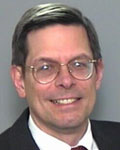 Mark MacCarthy teaches and conducts research at Georgetown University's Communication, Culture, and Technology Program. He teaches courses on the development of the electronic media, technology policy and Internet freedom. He is also an adjunct member of the Department of Philosophy where he teaches courses in political philosophy and philosophy and privacy. He does research and consults in the areas of information privacy and security, Internet intermediary liability, global Internet freedom, the future of the online media, consumer financial protection, open standards, electronic and mobile commerce and other technology policy issues. He is an Affiliate of Georgetown University's McDonough School of Business Center for Business and Public Policy, an investigator with the RFID Consortium for Security and Privacy, and the appointed expert of the American National Standards Institute on the International Organization For Standardization (ISO) Technical Management Board (TMB) Privacy Steering Committee
Mark MacCarthy teaches and conducts research at Georgetown University's Communication, Culture, and Technology Program. He teaches courses on the development of the electronic media, technology policy and Internet freedom. He is also an adjunct member of the Department of Philosophy where he teaches courses in political philosophy and philosophy and privacy. He does research and consults in the areas of information privacy and security, Internet intermediary liability, global Internet freedom, the future of the online media, consumer financial protection, open standards, electronic and mobile commerce and other technology policy issues. He is an Affiliate of Georgetown University's McDonough School of Business Center for Business and Public Policy, an investigator with the RFID Consortium for Security and Privacy, and the appointed expert of the American National Standards Institute on the International Organization For Standardization (ISO) Technical Management Board (TMB) Privacy Steering Committee
From 2000 to 2008, he was Senior Vice President for Global Public Policy at Visa Inc, responsible for policy initiatives affecting electronic commerce, new technology and information security and privacy. He regularly represented Visa before the U.S. Congress, the U.S. Administration, the U.S. Federal Trade Commission, the U.S federal financial regulators and multi-governmental groups such as the Organization for Economic Cooperation and Development and Asia Pacific Economic Cooperation group.
Prior to joining Visa, he spent six years as a principal and senior director with the Wexler-Walker Group, a Washington public policy consulting firm, where he worked with a variety of clients on electronic commerce, financial services, privacy and telecommunications. He was Vice President in charge of Capital Cities/ABC's Washington office from 1988 to 1994, representing the company's interests before Congress, the Federal Communications Commission and other administrative agencies. From 1981 to 1988 he was a professional staff member of the House Committee on Energy and Commerce, where he handled communications policy issues. From 1978 to 1981, he worked as an economist performing regulatory analyses of safety and health regulations at the U.S. Occupational Safety and Health Administration.
Mr. MacCarthy has a Ph.D in philosophy from Indiana University and an MA in economics from the University of Notre Dame.
Geoffrey Manne
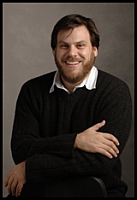 Currently the Executive Director of the International Center for Law & Economics (ICLE), a global think tank, Professor Manne also serves as Lecturer in Law for Lewis & Clark Law School. In this capacity he lends his expertise to various law school endeavors and teaches the school's Law and Economics course. The ICLE's website is at www.laweconcenter.org.
Currently the Executive Director of the International Center for Law & Economics (ICLE), a global think tank, Professor Manne also serves as Lecturer in Law for Lewis & Clark Law School. In this capacity he lends his expertise to various law school endeavors and teaches the school's Law and Economics course. The ICLE's website is at www.laweconcenter.org.
Manne was an Assistant Professor of Law at Lewis & Clark from 2003 to 2008. From 2006 to 2008 he took a leave of absence from the school to direct a law and economics academic outreach program at Microsoft, and was Director, Global Public Policy at LECG, an economic consulting firm, until founding the ICLE at the end of 2009. Prior to joining the Lewis & Clark faculty he practiced law at Latham & Watkins in Washington, D.C., where he specialized in antitrust litigation and counseling. Before private practice Manne was a Bigelow Fellow at the University of Chicago Law School, an Olin Fellow at the University of Virginia School of Law and a law clerk to Judge Morris S. Arnold of the U.S. Court of Appeals for the Eighth Circuit. While clerking he taught a seminar on Law & Literature at the University of Arkansas at Little Rock.
During law school Manne was a research assistant to Judge Richard Posner, Comment Editor of the University of Chicago Law School Roundtable and a Staff Member of the University of Chicago Legal Forum. Among his other vocational pursuits was a brief stint at the U.S. Federal Trade Commission. His research has focused broadly on the economic implications of legal constraints on business organizations, particularly in the contexts of antitrust, nonprofit organizations and international law. Manne is a member of the Virginia bar, as well as the Bar of the U.S. Bankruptcy Court for the Eastern District of Virginia. He is also a member of the American Law and Economics Association, the Canadian Law and Economics Association and the International Society for New Institutional Economics.
He blogs for the Technology Liberation Front.
Evgeny Morozov
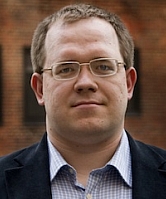 Evgeny Morozov is the author of The Net Delusion: The Dark Side of Internet Freedom (Public Affairs, 2011). He is also a visiting scholar at Stanford University, a fellow at the New America Foundation and a contributing editor to Foreign Policy magazine.
Evgeny Morozov is the author of The Net Delusion: The Dark Side of Internet Freedom (Public Affairs, 2011). He is also a visiting scholar at Stanford University, a fellow at the New America Foundation and a contributing editor to Foreign Policy magazine.
Milton Mueller
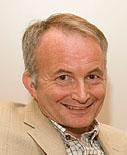 Milton Mueller teaches and does research on the political economy of communication and information. He uses the theoretical tools of property rights analysis, institutional economics and both historical and quantitative social science methods. He has a longstanding interest in the history of communication technologies and global governance institutions. Mueller received the Ph.D. from the University of Pennsylvania in 1989.
Milton Mueller teaches and does research on the political economy of communication and information. He uses the theoretical tools of property rights analysis, institutional economics and both historical and quantitative social science methods. He has a longstanding interest in the history of communication technologies and global governance institutions. Mueller received the Ph.D. from the University of Pennsylvania in 1989.
Mueller's most recent research projects explore the problem of governing the Internet. His new book Networks and States: The global politics of Internet governance (MIT Press, 2010) provides a comprehensive overview of the political and economic drivers of a new global politics. His acclaimed book Ruling the Root: Internet Governance and the Taming of Cyberspace (MIT Press, 2002) was the first scholarly account of the debates over the governance of the domain name system. His book, Universal Service: Competition, Interconnection and Monopoly in the Making of the American Telephone System (MIT Press, 1997) set out a dramatic revision of our understanding of the origins of universal telephone service and the role of interconnection in industry development. He is on the international editorial boards of the journals Telecommunications Policy, The Information Society, and Info: The Journal of Policy, Regulation and Strategy for Telecommunication, Information and Media.
John Palfrey
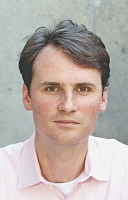 John Palfrey is Henry N. Ess Professor of Law and Vice Dean for Library and Information Resources at Harvard Law School. He is the co-author of Born Digital: Understanding the First Generation of Digital Natives (Basic Books, 2008) and Access Denied: The Practice and Politics of Internet Filtering (MIT Press, 2008). His research and teaching is focused on Internet law, intellectual property, and international law. He practiced intellectual property and corporate law at the law firm of Ropes & Gray. He is a faculty co-director of the Berkman Center for Internet & Society at Harvard University. Outside of Harvard Law School, he is a Venture Executive at Highland Capital Partners and serves on the board of several technology companies and non-profits. John served as a special assistant at the U.S. EPA during the Clinton Administration. He is a graduate of Harvard College, the University of Cambridge, and Harvard Law School.
John Palfrey is Henry N. Ess Professor of Law and Vice Dean for Library and Information Resources at Harvard Law School. He is the co-author of Born Digital: Understanding the First Generation of Digital Natives (Basic Books, 2008) and Access Denied: The Practice and Politics of Internet Filtering (MIT Press, 2008). His research and teaching is focused on Internet law, intellectual property, and international law. He practiced intellectual property and corporate law at the law firm of Ropes & Gray. He is a faculty co-director of the Berkman Center for Internet & Society at Harvard University. Outside of Harvard Law School, he is a Venture Executive at Highland Capital Partners and serves on the board of several technology companies and non-profits. John served as a special assistant at the U.S. EPA during the Clinton Administration. He is a graduate of Harvard College, the University of Cambridge, and Harvard Law School.
Frank Pasquale
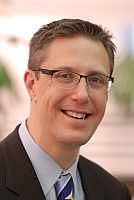 Frank Pasquale is a professor of law at Seton Hall Law School and a visiting fellow at the Princeton University's Center for Information Technology Policy. He has a JD from Yale, was a Marshall Scholar at Oxford, and graduated from Harvard summa cum laude. He has been a visiting professor at Yale and Cardozo Law Schools. He has published widely on information law and policy. In 2010, he was twice invited by the National Academy of Sciences's Committee on Law, Science, and Technology and its Government-University-Industry Roundtable to present on the privacy and security implications of data sensor networks. He also was invited by the Department of Health and Human Services' Office of the National Coordinator for Health Information Technology to present at a roundtable organized to inform ONC's Congressionally mandated report on privacy and security requirements for entities not covered by HIPAA (relating to Section 13424 of the HITECH Act). In 2008, he presented Internet Nondiscrimination Principles for Competition Policy Online before the Task Force on Competition Policy and Antitrust Laws of the House Committee on the Judiciary, appearing with the General Counsels of Google, Microsoft, and Yahoo. He is the Chair of the Privacy & Defamation section of the American Association of Law Schools for 2010.
Frank Pasquale is a professor of law at Seton Hall Law School and a visiting fellow at the Princeton University's Center for Information Technology Policy. He has a JD from Yale, was a Marshall Scholar at Oxford, and graduated from Harvard summa cum laude. He has been a visiting professor at Yale and Cardozo Law Schools. He has published widely on information law and policy. In 2010, he was twice invited by the National Academy of Sciences's Committee on Law, Science, and Technology and its Government-University-Industry Roundtable to present on the privacy and security implications of data sensor networks. He also was invited by the Department of Health and Human Services' Office of the National Coordinator for Health Information Technology to present at a roundtable organized to inform ONC's Congressionally mandated report on privacy and security requirements for entities not covered by HIPAA (relating to Section 13424 of the HITECH Act). In 2008, he presented Internet Nondiscrimination Principles for Competition Policy Online before the Task Force on Competition Policy and Antitrust Laws of the House Committee on the Judiciary, appearing with the General Counsels of Google, Microsoft, and Yahoo. He is the Chair of the Privacy & Defamation section of the American Association of Law Schools for 2010.
Pasquale has been quoted in the New York Times, San Francisco Chronicle, Los Angeles Times, Boston Globe, Financial Times, and many other publications. He has appeared on CNN to comment on Google's China policy. He has been interviewed on internet regulation on David Levine's Hearsay Culture poD.C.ast, WNYC's Brian Lehrer Show, the Canadian BroaD.C.asting Corporation's documentary "Engineering Search," and on National Public Radio's Talk of the Nation. His recent publications include "Beyond Innovation and Competition," "Network Accountability for the Domestic Intelligence Apparatus" (with Danielle Citron), "Restoring Transparency to Automated Authority," and "Data and Power." He is presently working on a book titled "The Black Box Society" which examines and critiques the rise of secret technology in the internet and finance sectors.
Berin Szoka
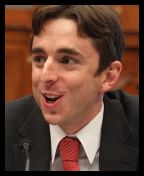 Berin Szoka is founder of TechFreedom, a non-profit think tank dedicated to unleashing the progress of technology that improves the human condition and expands individual capacity to choose.
Berin Szoka is founder of TechFreedom, a non-profit think tank dedicated to unleashing the progress of technology that improves the human condition and expands individual capacity to choose.
Previously, he was a Senior Fellow and the Director of the Center for Internet Freedom at The Progress & Freedom Foundation. Before joining PFF, he was an Associate in the Communications Practice Group at Latham & Watkins LLP, where he advised clients on regulations affecting the Internet and telecommunications industries. Before joining Latham's Communications Practice Group, Szoka practiced at Lawler Metzger Milkman & Keeney, LLC, a boutique telecommunications law firm in Washington, and clerked for the Hon. H. Dale Cook, Senior U.S. District Judge for the Northern District of Oklahoma.
Szoka received his Bachelor's degree in economics from Duke University and his juris doctor from the University of Virginia School of Law, where he served as Submissions Editor of the Virginia Journal of Law and Technology. He is admitted to practice law in the District of Columbia and California (inactive).
He serves on the Steering Committee for the D.C. Bar's Computer & Telecommunications Law Section, and on the FAA's Commercial Space Transportation Advisory Committee (COMSTAC). Szoka has chaired, and currently serves on, the Board of Directors of the Space Frontier Foundation, a non-profit citizens' advocacy group founded in 1988 and dedicated to advancing commercial opportunity and expansion of human civilization in space.
Szoka blogs for the Technology Liberation Front
Paul Szynol
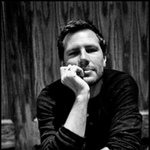 Paul Szynol was born in Warsaw, Poland, and moved to the United States in 1984, the year that New York City's transit fare rose from 75 cents to 90 cents; 33 previously unknown Bach pieces were found in an academic library; and Canon demoed its first digital still camera. He has lived in New York City, San Francisco, Los Angeles, New Haven, Philadelphia, New Jersey, and Warsaw, and, during his six drives across the U.S., visited the vast majority of the contiguous states. He graduated from Columbia University, where he studied history and philosophy, and Yale University, where he studied intellectual property law. He has also taken courses at the International Center of Photography. In the past, Paul played drums and was a computer programmer, and he still tinkers with Pearl drums and Java libraries. He likes dogs, documentary photography, music, San Francisco, Linux, and depressing movies. He is currently based in New York City.
Paul Szynol was born in Warsaw, Poland, and moved to the United States in 1984, the year that New York City's transit fare rose from 75 cents to 90 cents; 33 previously unknown Bach pieces were found in an academic library; and Canon demoed its first digital still camera. He has lived in New York City, San Francisco, Los Angeles, New Haven, Philadelphia, New Jersey, and Warsaw, and, during his six drives across the U.S., visited the vast majority of the contiguous states. He graduated from Columbia University, where he studied history and philosophy, and Yale University, where he studied intellectual property law. He has also taken courses at the International Center of Photography. In the past, Paul played drums and was a computer programmer, and he still tinkers with Pearl drums and Java libraries. He likes dogs, documentary photography, music, San Francisco, Linux, and depressing movies. He is currently based in New York City.
Adam Thierer
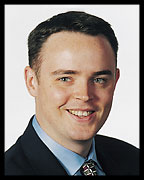 Adam Thierer is a senior research fellow at the Mercatus Center at George Mason University where he works with the Technology Policy Program. Thierer covers technology, media, Internet, and free speech policy issues with a particular focus in online child safety and digital privacy policy issues.
Adam Thierer is a senior research fellow at the Mercatus Center at George Mason University where he works with the Technology Policy Program. Thierer covers technology, media, Internet, and free speech policy issues with a particular focus in online child safety and digital privacy policy issues.
Thierer has spent almost two decades in the public policy research community. He previously served as the President of The Progress & Freedom Foundation, the Director of Telecommunications Studies at the Cato Institute, a Senior Fellow at The Heritage Foundation as a Fellow in Economic Policy, and a researcher at the Adam Smith Institute in London.
Thierer is the author or editor of seven books on diverse topics such as media regulation and child safety issues, mass media regulation, Internet governance and jurisdiction, intellectual property, regulation of network industries, and the role of federalism within high-technology markets. He earned his B.A. in journalism and political science at Indiana University, and received his M.A. in international business management and trade theory at the University of Maryland.
Thierer has served on several distinguished online safety task forces, including Harvard Law School's Internet Safety Technical Task Force, a "Blue Ribbon Working Group" on child safety organized by Common Sense Media, the iKeepSafe Coalition, and the National Cable & Telecommunications Association, and the National Telecommunications and Information Administration's "Online Safety and Technology Working Group." He is also an advisor to the American Legislative Exchange Council's Telecom & IT Task Force. In 2008, Thierer received the Family Online Safety Institute's "Award for Outstanding Achievement."
He also blogs for the Technology Liberation Front
Hal Varian
 Hal R. Varian is the Chief Economist at Google. He started in May 2002 as a consultant and has been involved in many aspects of the company, including auction design, econometric analysis, finance, corporate strategy and public policy.
Hal R. Varian is the Chief Economist at Google. He started in May 2002 as a consultant and has been involved in many aspects of the company, including auction design, econometric analysis, finance, corporate strategy and public policy.
He is also an emeritus professor at the University of California, Berkeley in three departments: business, economics, and information management.
He received his SB degree from MIT in 1969 and his MA in mathematics and Ph.D. in economics from UC Berkeley in 1973. He has also taught at MIT, Stanford, Oxford, Michigan and other universities around the world.
Dr. Varian is a fellow of the Guggenheim Foundation, the Econometric Society, and the American Academy of Arts and Sciences. He was Co-Editor of the American Economic Review from 1987-1990 and holds honorary doctorates from the University of Oulu, Finland and the University of Karlsruhe, Germany.
Professor Varian has published numerous papers in economic theory, industrial organization, financial economics, econometrics and information economics. He is the author of two major economics textbooks which have been translated into 22 languages. He is the co-author of a bestselling book on business strategy, Information Rules: A Strategic Guide to the Network Economy and wrote a monthly column for the New York Times from 2000 to 2007.
Christopher Wolf
 Christopher Wolf is a director of Hogan Lovells' Privacy and Information Management practice group. Chris is widely recognized as one of the leading American practitioners in the field of privacy and data security law. The prestigious Practising Law Institute (PLI) tapped Chris to serve as editor and lead author of its first-ever treatise on the subject, and to serve as co-editor of its guide to the FACTA Red Flags identity theft regulations. Chris recently was heralded for his "lifelong experience as a litigator" by Chambers U.S.A by ranking him as one of the nation's top privacy lawyers. He also was asked to form and co-chair The Future of Privacy Forum, a think tank that focuses on modern privacy issues with a business practical-consumer friendly perspective, collaborating with industry, government, academia, and privacy advocates. When MSNBC labeled Chris "a pioneer in Internet law," it was reflecting on his participation in many of the precedent-setting matters that form the framework of modern privacy law.
Christopher Wolf is a director of Hogan Lovells' Privacy and Information Management practice group. Chris is widely recognized as one of the leading American practitioners in the field of privacy and data security law. The prestigious Practising Law Institute (PLI) tapped Chris to serve as editor and lead author of its first-ever treatise on the subject, and to serve as co-editor of its guide to the FACTA Red Flags identity theft regulations. Chris recently was heralded for his "lifelong experience as a litigator" by Chambers U.S.A by ranking him as one of the nation's top privacy lawyers. He also was asked to form and co-chair The Future of Privacy Forum, a think tank that focuses on modern privacy issues with a business practical-consumer friendly perspective, collaborating with industry, government, academia, and privacy advocates. When MSNBC labeled Chris "a pioneer in Internet law," it was reflecting on his participation in many of the precedent-setting matters that form the framework of modern privacy law.
Chris has deep experience in the entire range of international, federal, and state privacy and data security laws as well as the many sectoral and geographic regulations. Chris also counsels clients on compliance with self-regulatory regimes.
Chris has appeared as a speaker for the International Association of Privacy Professionals and for the Canadian Association of Chief Privacy Officers. He appears annually at the PLI Institute on Privacy and Security Law. He also has spoken at colleges and universities including Harvard, Stanford, Berkeley, the University of Chicago, George Washington University, Georgetown University, and the Washington & Lee University School of Law. He is a frequent television guest on privacy and related issues, appearing on PBS, NBC, MSNBC, CNN, Fox News, and others.
Chris is a fourth-generation Washingtonian who started his career in Washington, D.C. as law clerk to The Honorable Aubrey E. Robinson, Jr., of the U.S. District Court for the District of Columbia. While in law school, he was a member of the Washington & Lee Law Review.
Tim Wu
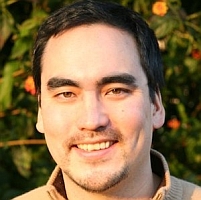 Tim Wu is a professor at Columbia Law School. He teaches copyright and communications.
Tim Wu is a professor at Columbia Law School. He teaches copyright and communications.
He is the chair of media reform organization Free Press, and writes for Slate magazine on law, media, culture, travel, and dumplings. He has also written for some other publications as a pure freelancer, including the New Yorker, the New York Times, Washington Post Weekend, and Forbes.
He is also involved in various other projects, usually related to alternative channels of content distribution. Many are run through the Columbia Program on Law & Technology. One example is Project Posner, another is AltLaw, and another is Keep Your Copyrights.
His first book was Who Controls the Internet with Jack Goldsmith. He is writing a new book on the long patterns of media centralization and decentralization; the publisher is Knopf / Random House.
His topics of study are: Network neutrality, the history and structure of the media and communications industries (the book he is currently working on), international problems faced by the Internet (see Who Controls the Internet, and copyright and innovation policy (Copyright's Communications Policy).
His brother is David Wu, author of the Xbox 360 game Full Auto, and his mother is Gillian Wu, a scientist. He is married to Kate Judge. His best friends are the Famous Five.
Michael Zimmer
Michael Zimmer, PhD, is an assistant professor in the School of Information Studies at the University of Wisconsin-Milwaukee, and an associate at the Center for Information Policy Research.
With a background in new media and Internet studies, the philosophy of technology, and information policy, Zimmer studies the social, political, and ethical dimensions of new media and information technologies. His research and teaching focuses on:
- Ethics and Information Technology
- Information Policy
- Web Search Engines
- Web 2.0 and Library 2.0
- Privacy and Surveillance Theory
- Information and Web Literacy
- Access to Knowledge
- Internet Research Ethics
Zimmer received his PhD in 2007 from the Department of Media, Culture, and Communication at New York University under the guidance of Profs. Helen Nissenbaum, Alex Galloway, and Siva Vaidhyanathan. He was a Student Fellow at the Information Law Institute at NYU Law from 2004-2007, and was the Microsoft Resident Fellow at the Information Society Project at Yale Law School for 2007-2008. Zimmer joined UW-Milwaukee's School of Information Studies in 2008.
Zimmer earned a B.B.A. in Marketing from the University of Notre Dame in 1994 and worked for an electronic payment processing company in Milwaukee, Wisconsin for several years before moving to New York City to pursue a new career in academia. He earned an M.A. in Media Ecology from NYU in 2002, and his doctoral studies were supported by the Phyllis and Gerald LeBoff Doctoral Fellowship in Media Ecology from the Steinhardt School of Education at New York University. His dissertation research was supported by an NSF SES Dissertation Improvement Grant.
Zimmer has published in international journals and delivered talks across North America and Europe. He has been interviewed in The New York Times, on National Public Radio's Morning Edition and Science Friday programs, The Huffington Post, MSNBC.com, GQ Magazine, The Montreal Gazette, The Boston Globe, MIT Technology Review, The Milwaukee Journal Sentinel, and in various other national and local print and radio outlets.
Zimmer was also featured in the "Is My Cellphone Spying on Me?" commentary accompanying the 2-disc special edition DVD for the hit action/thriller movie Eagle Eye.
Jonathan Zittrain
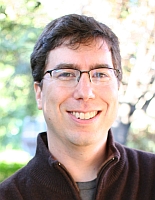 Jonathan Zittrain is Professor of Law at Harvard Law School and the Harvard Kennedy School of Government, co-founder of the Berkman Center for Internet & Society, and Professor of Computer Science in the Harvard School of Engineering and Applied Sciences. He is a member of the Board of Trustees of the Internet Society and is on the board of advisors for Scientific American. Previously he was Professor of Internet Governance and Regulation at Oxford University.
Jonathan Zittrain is Professor of Law at Harvard Law School and the Harvard Kennedy School of Government, co-founder of the Berkman Center for Internet & Society, and Professor of Computer Science in the Harvard School of Engineering and Applied Sciences. He is a member of the Board of Trustees of the Internet Society and is on the board of advisors for Scientific American. Previously he was Professor of Internet Governance and Regulation at Oxford University.
His research interests include battles for control of digital property and content, cryptography, electronic privacy, the roles of intermediaries within Internet architecture, and the useful and unobtrusive deployment of technology in education.
He performed the first large-scale tests of Internet filtering in China and Saudi Arabia in 2002, and now as part of the OpenNet Initiative he has co-edited a study of Internet filtering by national governments, Access Denied: The Practice and Policy of Global Internet Filtering, and its sequel, Access Controlled: The Shaping of Power, Rights, and Rule in Cyberspace.
His book The Future of the Internet—And How to Stop It is available from Yale University Press and Penguin UK—and under a Creative Commons license. His papers may be found at www.jz.org.
Ethan Zuckerman
Ethan Zuckerman served as a fellow of the Berkman Center for Internet and Society at Harvard University from 2003 through 2009. Since 2009, he's been a senior researcher at the center, working on projects that focus on the impact of technology and media on the developing world and on quantitative analysis of media. With Hal Roberts, he is working on comparative studies of tools for censorship circumvention, techniques for blocking-resistant publishing for human rights sites and on the Media Cloud framework for quantitative study of digital media.
Ethan and Berkman fellow Rebecca MacKinnon founded Global Voices, a global citizen media network. Beginning at a Berkman conference in 2004, Global Voices has grown into an independent Netherlands-based nonprofit with over 200 employees and volunteers in over 100 countries. Global Voices maintains an international citizen media newsroom, tracks censorship and advocates for freedom of speech online, supports grassroots citizen media efforts and is a pioneer in the space of social translation. Global Voices' work has been supported by the MacArthur Foundation, Ford Foundation, Knight Foundation, Hivos, Open Society Institute as well as Google, Reuters and private donors. Ethan chairs Global Voices' global board of directors.
In 2000, Ethan founded Geekcorps, a non-profit technology volunteer corps. Geekcorps pairs skilled volunteers from U.S. and European high tech companies with businesses in emerging nations for one to four month volunteer tours. Volunteers have served in 14 nations, including Ghana, Senegal, Mali, Rwanda, Armenia and Jordan, completing over a hundred projects. Geekcorps became a division of the International Executive Service Corps in 2001, where Ethan served as a vice president from 2001 to 2004.




